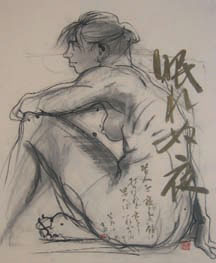March is a nice month. Even though it comes in like a lion, it goes out like a lamb. It starts cold, but spring arrives this month. By the end of March, the days become visibly longer.
And it’s also Women’s History Month-which actually started out as a week, established by the United Sates Congress back in 1981 to coincide with International Women’s Day, March 8, of every year. In 1987, Women’s History Week was expanded to a whole month, the month of March, as it is now.
Perhaps one of these days we can see the month expand to an entire 365 days to commemorate the numerous women who have struggled for equality and justice all year round. For the time being, March it is, and this year’s theme is “Women Change America.” When we think of the women who have fought for change in America alone, the list is overwhelming.
Only recently have the achievements of women throughout American history been highlighted. To acknowledge them is momentous. To do so in a just manner, however, one must own up to the fact that there are still countless women whose struggles have been ignored and will eternally remain nameless. But for now, let us pay tribute to the women who have contributed in a myriad of ways to the vitality, richness, and diversity of American life
Sacajawea: a Shoshone woman whose husband, the French-Canadian Charbonneau, was hired to guide Lewis and Clark and brought Sacajawea, with her son Jean Baptiste. Her knowledge of the terrain and mountain passes saved weeks of travel time. Her ability to translate along the expedition gave her the ability to negotiate with other natives, allowing the expedition to keep fresh horses and food throughout. Her presence is also said to have kept the peaceful nature of the expedition. Clark carefully detailed her contributions to the success of the journey.
Gloria Steinem: dedicated to fashioning a world that fits the needs of its people, she is well known for saying, “If the shoe doesn’t fit, must we change the foot?” Steinem was one of the major women’s activists in the late 1960s when she lectured nation wide and wrote “After Black Power Comes Women’s Liberation.” She co-founded New York Magazine in the ’60s and MS Magazine in the early ’70s, which she still writes for to this day.
Helen Keller: at the age of one-and-a-half, Helen Keller lost her sight and hearing due to severe illness. Despite her disabilities she was still able to read and write. Keller attended college, traveled the world and wrote 12 books. Keller challenged the world to respect the disabled. She lived to be 87 years old.
Fannie Lou Hamer: best known for “being sick and tired of being sick and tired.” Hamer was the granddaughter of slaves, born in Montgomery County, Mississippi in 1917-the heart America’s Jim Crow era. In 1962, when SNCC volunteers arrived to Mississippi for a voter registration campaign, Hamer was surprised to learn that African Americans too had constitutional voting rights. When asked by volunteers to go to the courthouse to fill voter registration forms, Hamer was the first to raise her hand and volunteer. Upon arriving to the courthouse, Hamer and other volunteers were arrested and jailed. Hamer was not discouraged and went on to found Mississippi Freedom Democratic Party (MFDP) and through it challenged an all-white Mississippi delegation through speeches contesting the illegal voting taxes and tests. Her speeches opened up the door to two MFDP volunteers gaining speaking rights at the ’64 Democratic National Convention.
Emma Goldman: she stands as one of America’s major figures for feminism and radicalism. In 1869 she was born to poor Jewish parents in Russian, where Goldman was forced to leave school and work in a factory at the age of 13. It was in the factories that Goldman was challenged to think about equality between the sexes and anarchy. After she rejected marriage proposals, her parents sent their “rebellious” daughter to America to join her sister. America only meant more slums, sweatshops, and unsafe and unsanitary working conditions. The Chicago Haymarket Square tragedy in 1886 startled young Goldman and pushed her further towards anarchy. Goldman advocated free speech, birth control, women’s equality and independence, and union organization.
Today we tip our hats to the millions of American women that work to change America every day: the 531,000 post-secondary teachers/professors, the 250,000 lawyers, 253,000 bus drivers, the 78,000 police officers, the 52,000 producers and directors, the 44,000 news analysts/reporters/correspondents, the 62,000 athletes and coaches, the 22,000 private detectives, the 5,000 aircraft pilots, the 3,000 astronomers and physicists (www.census.gov).
Approximately 55 percent of these women are mothers earning 77¢ to the $1 of their male counterparts-a humble reminder to us today that a myriad of work is still left to be done. After all, women are 146.7 million of the American population according to the 2002 census; men make up 141.7. Women also have a higher high school graduation rate, and they make up 57 percent of the college student population. How about them apples?
As we observe Women’s History Month in the United States, we must not forget our observance must be of an international scope, because American women just one segment of the entire female world population. Women across the globe are struggling to gain rights that we here have enjoyed for almost a century. As we enjoy our freedoms, the world is abounding with women’s rights abuses.
The Organization of Women’s Freedom in Iraq struggles to unite Iraqi and Kurdish women to extend their rights so that they can have”the same rights that women enjoy in other countries.” Some of the demands include the right to education, the right to choose a partner without coercion or threat, and the right to travel. In other parts of the world, the demands are even more basic: the right to live.
Every year, a million Chinese female fetuses are aborted and tens of thousands of baby girls are abandoned, literally disposed of in garbage cans, all because of China’s family laws where couples are permitted only one child per household. Too frequently, the birth of a baby girl is a disappointment.
So as this month comes to a close, to pay tribute to women’s contributions to American history and life, our honor must extended to the struggles of countless women all over the world today. Otherwise, when women aren’t allowed to vote, or when women aren’t getting educated, when women are being openly abused, or, worse still, when women are dying simply because they are women, then what is there to celebrate?
Boston Construction No. 2, Photography






















































